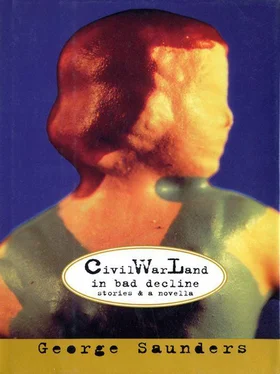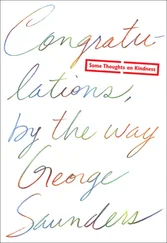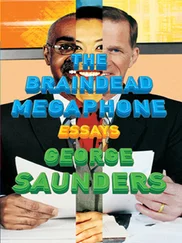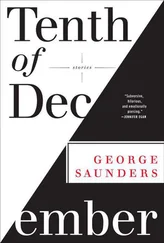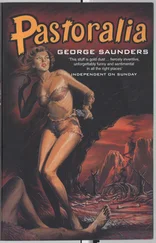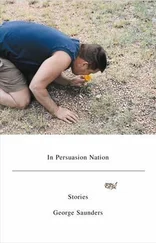A week later she goes into labor in the rec room and what seems like years into the night something comes from her, something red and yowling and malleable, temporarily cross-eyed but ours, our girl, and Connie names her Anita, for our mother.
She has Corbett’s eyes and Connie’s vestigial tail.
That night I dream I’m standing barefoot before a crowd of hostile Normals with baseball bats. I tell them I’ve never loved anyone so much in my life. I describe the way the baby flinches when she passes gas, her tiny brown eyes, the smell of her head. I beg them to repeal the Slave Edict and grant her full citizenship. I ask them to consider their own children and honor that part of the eternal that resides within them. Then I stand there smiling feebly, hoping for the best, and the crowd surges forward and knocks the hell out of me with their bats until I’m dead.
I wake with a start and think: What am I doing here?
There’s a rebel cell recruiting down in Talpa. According to Corbett they’re a bunch of skinny passionate guys in a leaning barn, practicing hand-to-hand with broomsticks and eating vanilla wafers provided in bulk by a sympathetic grocer from Chimayó. After dinner I kiss Connie goodbye and the baby goodbye and shake Corbett’s hand and off I go.
The night’s cold. I see a bushel of snowfrosted apples and two black horses snorting at a frozen shirt on a fence-post and I’m lonely already.
There’s a half-moon above the rebel barn. I give a little knock.
“I’m here to help,” I whisper, and the door swings open.
1.
This book was written in the Rochester, New York, offices of Radian Corporation between 1989 and 1996, at a computer strategically located to maximize the number of steps a curious person (a boss, for example) would have to take to see that what was on the screen was not a technical report about groundwater contamination but a short story.
I had graduated from the Syracuse MFA program in 1988 and had been writing stories that owed everything to Ernest Hemingway and suffered for that. They were stern and minimal and tragic and had nothing to do whatsoever with the life I was living or, for that matter, any life I had ever lived.
We billed our hours, and I would respond to any disrespect toward my person by declaring (in my mind, always only in my mind): “Thanks, a-hole, your project has just funded a Saunders grant for the arts.” And, for an edit that could have been done in an hour, I would bill that program manager’s project an hour and a half, then use the liberated half hour to work on my book.
This book.
“Capitalism plunders the sensuality of the body,” wrote Terry Eagleton, and that was certainly true of my body at that time. It was being plundered of its sensuality every day. I had an engineering degree but was working as a tech writer. I had earned a reputation as the go-to guy where document covers were concerned. I was good at taping figures into place on frame sheets. I spent a lot of time at the photocopier, producing copies of the reports I had just edited, so we could send them to Kodak or the New York Department of Environmental Conservation, who, we suspected, often filed them without having read them. I was gaining weight, losing energy, had grown a consolation ponytail, would go home sore in my ankles and knees from walking what felt like miles on the thin carpeting that ran over our concrete floors.
There was a lot going on at home during those years, too. My wife, Paula, and I had gotten engaged after dating for three weeks. She became pregnant on the honeymoon, then went into labor at four months. She was put on total bed-rest and required to take a drug (since outlawed by the FDA) to suppress her contractions. This happened again during her second pregnancy. So, while I was writing this book, we had two baby daughters at home, each made doubly precious by how close we’d come to losing her. We didn’t have any money and were into our thirties and were (maybe, just a little) wondering how it was that we’d missed the boat in terms of this thing called upward mobility.
At one point our second car broke and we couldn’t afford to replace it, so I started riding my bike the seven miles to and from work, along the Erie Canal. As winter approached, Paula put together an ad hoc winterproofing ensemble for me: a set of lab goggles, a rain poncho, some high rubber boots that, as I remember, had little spacemen on them. Biking along the canal I’d be composing in my head, and might arrive at work with a sentence or two all worked out. Then I’d dash through the atrium, into the men’s room, and try to get myself cleaned up, while not forgetting those sentences. Ah, those were the days.
But seriously: those were the days.
Biking back into town after dark, past the cozy Colonial houses orange with firelight, I’d think: I have a home. I have people waiting for me, who love me. This is it. This is my life. These are the best years of my life.
2.
We managed to buy a house. It was small but sweet, and the four of us lived there, happily. What a thing it was, to suddenly have a real life happening to us, to be in over our heads but glad about it. The gratitude I was feeling nudged me to the edge of a thought precipice: Had others, loving this much, had it go wrong? Did that ever happen?
And I knew the answer was yes, of course, all the time, every day.
Which raised a second question, one that I now see as being at the heart of this book: Why is the world so harsh to those who are losing? Sensing how close we were to the edge financially (we lived check to check, were running up huge credit card debt), feeling ourselves bringing up the back of the pack in terms of what kind of life we were making for our daughters relative to the lives of their peers, I realized for the first time, in my gut, how harsh life could be and how little it cared if someone failed.
Don’t get me wrong: it wasn’t the Gulag. But I was puzzled by how difficult it was proving for me (a nice guy, an educated guy, a guy who loved his wife and kids) to put together a middle-class, or even lower-middle-class, livelihood for our family, and what it was costing me in terms of personal grace.
The realization that failure was possible, even for me, had the effect of increasing my empathy. If life could be this harsh/grueling/boring for someone who’d had all the advantages, what must it be like for someone who hadn’t? A thread of connection went out between me and everyone else. They, too, wanted to be happy. They, too, wanted to succeed. Maybe they had people they loved at home. They, too, were doing some weird uninteresting job in order to ensure the security and happiness of those beloved people of theirs, and yet…
And yet there were people sleeping on benches and muttering to themselves and getting fired, and there were nasty divorces and men slamming their fists into the sides of their cars when they thought no one was around.
It was as if I’d been driving along a highway littered with broken-down cars, blithely unconcerned, then heard a clunk from under my own hood.
What? I’d begun to think. Me, too, possibly?
All of this made its way slantwise into this book, although I’m not sure how aware of it I was at the time.
3.
It was a weird world I found myself living in then, a world I’d been trying to avoid all my life: a world of paper shuffling and cubicles and a cheap little tie I would wear whenever “the client” was coming in, a world through which a burned-coffee smell would emanate late in the afternoons; a world of long white hallways and generic/minimal furniture (no art on the walls, no flowers in vases), a world of five-hundred-page reports with titles like “Long-Term Study of Possible Effects of Alleged Benzene Spill on Indoor Air Quality on Riley Street,” which I would write and/or edit in the small one-computer room I shared with my officemate, Dawn Wendt (and God bless you, Dawn, for all the times you sensed an edgy marital phone conversation coming on and left the office, and God bless me, for all the times I did the same for you).
Читать дальше
